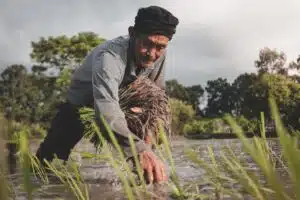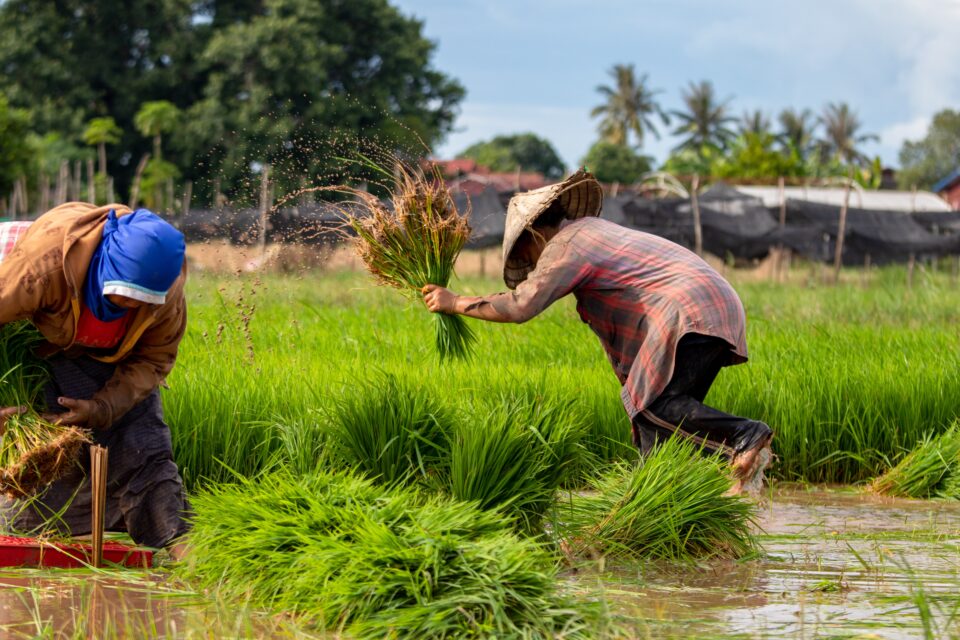By Yasmin Ramlan
SHAH ALAM, Oct 10 — The Federal government has been urged to increase funding for the agricultural industry in its upcoming Budget 2024 to address food security issues.
While Putrajaya has made known that much of the federal budget will be allocated to health and education, Universiti Kebangsaan Malaysia (UKM) economics professor Jamal Othman said that the Federal administration must find a solution to reduce heavy reliance on food imports, especially rice.
“It is more than a food security issue…we are moving towards food sovereignty.
“It is essential if we can fully produce our needs, for instance, 100 per cent of the rice consumption. We must grow them ourselves though it will be costly to meet our consumption,” he told Selangor Journal when recently contacted.
Previously, it was reported that the Ministry of Agriculture and Food Security (MAFS) aimed to improve the country’s 41st ranking in the Global Food Security Index (GFSI) 2022.
For rice in particular, Jamal emphasised the necessity for the government to make long-term plans beyond just addressing immediate food security concerns, which largely involve price regulation, government aid and subsidies and providing incentives to farmers.
“Rice should not be seen merely as commercial goods. We should look at the bigger picture holistically for the entire ecosystem of rice fields,” he said, giving a few examples of farmers in Korea and Japan generating extra income through its rural vitality.
Jamal envisioned how the farmers could boost their economy through rural landscape, green farming across the food and agricultural sector, as well as agrotourism.
He explained that rural vitality would ensure the sustainability of rural farming communities, which is crucial for the livelihoods and quality of life in rural areas.
“For example, if we go to the countryside or Mada (Muda Agriculture Development Authority) and Kada (Kemubu Agricultural Development Authority) areas, many of us will enjoy the landscape (scenery at paddy fields), but it is free of charge.

“The farmers, who are the ones producing it (intangible benefits) won’t get any penny out of it. Unlike in developed countries such as Japan and Korea, the farmers are recognised for their intangible benefits,” he said.
The recent local rice supply shortage led the government to launch a nationwide integrated operation effective immediately to crackdown on hoarders, fraudsters, and profiteers.
However, Agriculture and Food Security Minister Datuk Seri Mohamad Sabu dismissed suggestions that the current shortage of local white rice in the market is due to insufficient production to meet demands.
Instead, he reiterated that this is a result of more consumers purchasing locally produced goods following a recent hike in the price of imported rice as a result of export bans from 19 countries, including India.
While acknowledging that it would take time, Jamal suggested that policymakers should be aware of the situation and have better understanding of it in a broader context.
“It is similar to green economy and sustainability, renewable energy where not many of us are concerned about it but we keep talking about that. In the end, policymakers understood.
Meanwhile, touching on targeted fuel subsidy in the federal budget, Jamal said the savings would be channeled to renewable energy-related sectors if it is meant for the top 20 income group (T20).
In February, Deputy Finance Minister Datuk Seri Ahmad Maslan said that the government could save up to RM17 billion if the T20 group no longer receives fuel subsidies.
He said that in 2022, consumption of the three types of fuel in the lowest-income group (B40) was only 24 per cent, while the Middle-Income Group (M40) was 41 per cent and T20 was at 35 per cent.
“So, this portion that the government can save, should not be recycled to other income groups since they still receive the subsidies. But instead, it should be channeled to other related sectors, especially renewable energy, R&D, or whatever investment to spur this renewable energy sector,” said Jamal.
However, if the withdrawal of fuel subsidies applies to all groups, he stressed that the savings should be returned to the middle- and low-income groups (M40 and B40) in the form of government assistance.
Prime Minister Datuk Seri Anwar Ibrahim, who is also the Finance mMnister, is scheduled to table the 2024 Supply Bill at 4pm this Friday.





